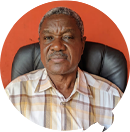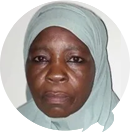- Phone: +255 754 604 996 | +255 754 027 997
- Email: info@cossede.org


Since independence, Community Development Initiatives in Tanzania have been rural oriented. They were focused mainly on advocating for and mobilizing local communities into strong organizational entities through which community members could be able to:-
• Determine their own destiny in terms of needs, resources and capabilities to influence the content of development assistance sourced mainly from the government;
• Jointly exert demand for and purchase farm production inputs and other social development services and bargain for better input and output/product prices and,
• Attract financial and human resources required for successful development.
Today community organizing initiatives are increasingly becoming vital and important also for small scale entrepreneurs in urban areas, academicians and professionals as well as workers in both public and private sectors.
In the past five decades the role of promoting community organizations was being spearheaded by the government. However, recent socio-economic changes, which have been sparked by changes in national economic development policies, have resulted in making the government an effective and efficient regulator or supervisor, while relegating the role of promoting community organizations to the private and non-governmental sector, where it actually belongs.
COSSEDe is a legally registered entity under The Non-governmental Organizations Act of No. 24 of 2002 with Registration Number ooNGO/R/3182 of 27th April 2022. It brings together individuals, professionals and/or organizations with proven expertise, experiences and institutional memories on community organization empowerment and development in both rural and urban areas. Membership to COSSEDe is therefore open to any person, natural or legal; with competence in the provision of community development services and who subscribes to the Organization’s Vision, Mission and Objectives as provided in its Constitution. Members are grouped as Founder Members; Ordinary Members; and Honorary members.
The Vision, Mission and Objectives of COSSEDe are as stated in Articles 7, 8 and 9 of its Constitution as follows:-
“To be a premier agency for effective community transformation”
“To empower grassroots communities and their organizations through participatory planning, community action and policy advocacy”
(i) Empower community members and their organizations on making strategic choices in planning, compliance assurance and determining their own destiny;
(ii) Promote meaningful participation and involvement of community member organizations and their leaderships in development programmes design, implementation, management and evaluation;
(iii) Forge and advocate for establishment and maintenance of strategic partnerships between communities, Government, Non-governmental organizations, civil society and other like-minded partners in community development and empowerment works; and
(iv) Empower community members on community development related issues including resource mobilization techniques for promoting ecologically-sound; and community-based development initiatives.
(a) COSSEDe considers organizing of smallholder farming and other small scale businesses into groups, associations, co-operative societies and/or any form of organization as a way towards instigating establishment of solid economic units which is a vital weapon for liberating small-scale producers and entrepreneurs from historic marginalization, oppression and exploitation.
(b) Small-scale producers and entrepreneurs will benefit from COSSEDe provided catalytic supports to form and sustain groups, associations, cooperatives and other form of producer and/or business organizations that can better represent their opinions and also assist them in their development undertakings; while reviving, strengthening and sustaining the existing organizations/associations/cooperatives.
(c) With strong and well supported grassroot organizations, production, processing and marketing of members’ produce/products will be developed and hence contribute to the sustenance of industrial economy for the prosperity of the local communities and the country at large.
(d) COSSEDe will also be an important avenue on enhancing financial empowerment to small scale producers and other entrepreneurs by promoting community-based resource mobilization groups which are important vehicles for deepening financial intermediation among small scale farming and other small scale business communities. These may include Village Based Community Banks (VICOBA), Savings and Credit Cooperative Societies (SACCOS) and development funds.
COSSEDe will be dedicated to work keenly and in close collaboration with all its internal and external stakeholders; and will greatly value and honour the contribution of each of them towards achieving its establishment objectives as provided in its Constitution. Identified key stakeholders whose activities are in one way or another linked to enhancing community organizing and support initiatives for social and economic development as envisioned by COSSEDe include the following:-
(i) COSSEDe promoted and/or supported community organizations;
(ii) Small scale producers’ organizations;
(iii) Partner Non-Governmental Organizations;
(iv) Companies and other private sector organizations;
(v) The Government and/or Development Partners/Donors;
(vi) Media Houses; and
(vii) Religious and Public Leaders;
Representatives of each of these COSSEDe’s Stakeholder groups, will be invited to attend and participate in different Stakeholders Fora that will be organized and held at least once in every year.
In its operation COSSEDe is guided by its Strategic Plan which sets a direction of implementation of all what it will be planning to undertake with the view to achieving the Organization’s Vision, Mission, Objectives and Targets. In fulfilling its Strategic intent, COSSEDe’s operations are based on the following principles:
• Use of scientific information and objectively driven local knowledge, as a basis for decision-making.
• Use of education and knowledge as a means to help people identify assets, capacities, needs, resources and creative solutions.
• Appreciation of civic active participation to improve the quality of community inputs and outputs.
• Recognition of internal and external collaborations, strategic partnerships and networking in attaining inclusive development goals.
• Respecting the uniqueness of individuals and communities and their localities.
• Employment of both applied and theoretical dimensions in searching for community organizational development.
• Development of viable communities through wise and judicious use of natural, economic, social, and human resources.
Preliminarily, the main sources of finance to COSSEDe that is expected to sustain its operations will be contributions from its members in the form of entrance fees and any other fees as will be determined from time to time by members. In this regard, the NGO Governing Board will work in close cooperation with the Government on devising and implementing various fundraising strategies, including consulting and enticing other stakeholders dealing with community organizing and development issues in the country, Development Partners and other well-wishing donors.
The rates and amounts of money to be contributed by COSSEDe members in the form of entrance fees and any other fees is deliberated and decided upon by Members General Assembly (MEGA). The NGO fundraising and expenditure procedures for any finance donated to COSSEDe, will abide to the fundamental principles of accountability and transparency; including proper book keeping, reporting, financial planning and budgeting, deployment of robust internal controls and auditing as well as undergoing annual external auditing by internationally reputable auditors.
The Management of COSSEDe’s activities is overseen by a five members Governing Board which is elected by the Members’ General Assembly (MEGA). MEGA is the highest body in the Organization’s leadership hierarchy. Under it there is a Governing Board, which is composed of five persons who are appointed by the members based on their expertise and capacities to provide visionary leadership and foresight to the organization. The Executive Director (ED) of the organization is also the Secretary to the Board. She/he is tasked with provision of an oversight of day to day activities of the NGO which are planned, coordinated and managed by the Management Team also appointed by the Governing Board on the advice of the ED.
Organizationally, COSSEDe’s operations and activities are implemented through three key thematic areas namely: Agriculture, Community Economic Empowerment and Education. Although in future each thematic area will have its own full-fledged strategy on its attainment, for the time being all the three thematic areas are implemented under the theme of Community Empowerment, under which they are implemented through the following sub-thematic areas, namely Knowledge Empowerment, Organizational Empowerment and Financial Empowerment.
 Dr Audax Rutabanzibwa
Dr Audax Rutabanzibwa
Board Chairman
“Academically Dr. Audax Peter Rutabanzibwa holds a Bachelor Degree in Law of the University of Dar es Salaam, Tanzania and a PhD Degree in Business Law of Leicester University, United Kingdom. Through his work as the Head of Legal Unit in the Ministry of Agriculture, he participated in pioneering and establishing several legal and institutional reforms in various crop-subsectors, agricultural marketing systems and cooperatives. He also participated in the establishment of the Tanzania Cooperative Development Commission and became the first Chief Executive Officer of the Commission and Registrar of Cooperatives. Dr. Rutabanzibwa is currently a Lecturer at Moshi Cooperative University (MoCU) where he lectures in Cooperative and Business Law; and conducts research and consultancies in Cooperatives and other community –based organizations.”
 CPA Venance K Ngunga
CPA Venance K Ngunga
Treasurer
“Academically Venance Kenneth Ngunga is a Certified Public Accontant (CPA).He graduated as an Accountant at the Institute of Finance Management in Dar es Salaam, and later joined in various Programs conducted by National Board of Accountancy and Auditors (NBAA). He offered various Services in Public and private sectors i.e Tanzania Audit Cooperation as Audit assistant and senior Auditor, Dar es Salaam Institute of Technology (DIT) as Chief Accountant and Financial controller, Tanzania Public Service College (TPSC) worked as Chief Accountant and Finance Manager, M.F.E Consultants Services company as a managing partner. Based in his various experience he'll be useful to COSSEDE to ensure sufficient funds are raised and used based on the Organization Mission, vission and objectives. ”
 Mathias Ndungi
Mathias Ndungi
Secretary
“As a graduate with a Master of Science Degree in Community Economic Development; Mr. Mathias Ndungi has vast experience on various Community Development issues in Tanzania. As he was working as a Civil Servant (1981-2019); Mr. Ndungi worked on developing plans and strategies for addressing the critical development challenges to smallholder farmers in the main cash crop industry communities (Sugar Cane, Tea, Coffee, Cotton, Sisal and Pyrethrum). He therefore has for many times, worked as Civil Service and Consultant on the Smallholder Farmers’ Knowledge, Organizational and Financial Empowerment; with the view to enhancing their Effective, Competitive, Commercial and Profitable participation in all value chain stages of the crops which they produce.”
 Mr. Gratian Mkoba
Mr. Gratian Mkoba
Board Member
“Mr. Gratian Alphonce Mkoba is a retired President of Trade Union Congress of Tanzania (TUCTA) and Tanzania Teachers’ Union (TTU) which is among the strongest Workers’ Unions in Tanzania. He holds a Diploma in Education from Butimba Teachers Training College in Mwanza Region and before his retirement from Civil Service in 2017; he had worked as a teacher at various schools in Tanzania including Mwawile, Ibanda, Mhonze and Bugogwa Primary Schools in Mwanza; Kahororo and Bukoba Secondary Schools in Kagera; and Benjamin Mkapa High School in Dar es Salaam. ”
 Mrs. Adah Mwasha
Mrs. Adah Mwasha
Board Member
“Adah Mdesa Mwasha holds A Bsc.& Msc. Degrees in Agriculture and Horticulture from Reading University in the UK and Sokoine University of Agriculture (SUA) in Morogoro region, Tanzania respectively. She worked with the Ministry of Agriculture as a research agronomist on rice and the Cashewnuts Improvement Program (CIP); a program that was geared to improve production and productivity of cashewnuts along the coastal strip of Tanzania. Her role was to establish the Cashewnuts Development Centres (CDCs) in Tanga and Coast region; and build capacity of farmers through training on modern agricultural practices e.g. grafting of cashews; and nursery management techniques. Up to her retirement in 2015, she worked with at the Headquarters of the Ministry headquarters as a Head of the Horticultural Unit ; where her main tasks were on coordinating horticultural development activities in (including Planning and Monitoring the Germplasm Orchards; Collection and Maintenance of the Mother Tree orchards; Promoting the use of Appropriate Techniques for Flower, Vegetable and Fruit Production; Value Addition on Fruits and Vegetables at Small and Large Scale Levels; Improvement of Market Linkages; and Conducting Feasibility Studies fort Project Preparations and Write ups).”
Donation
Fund Raised
Donation
Donation